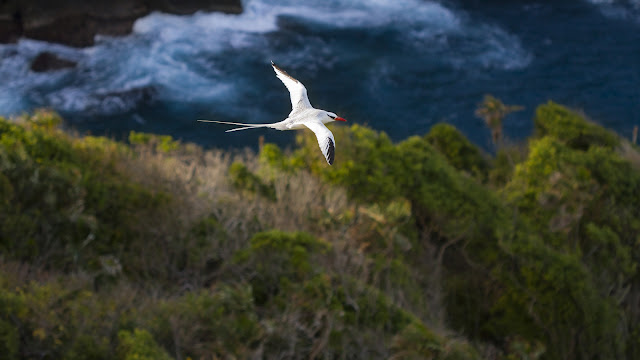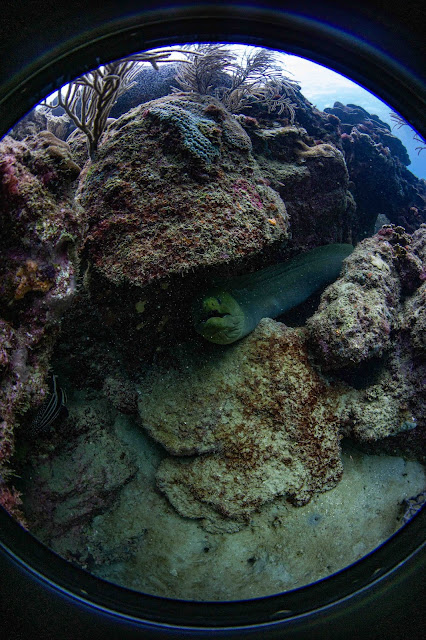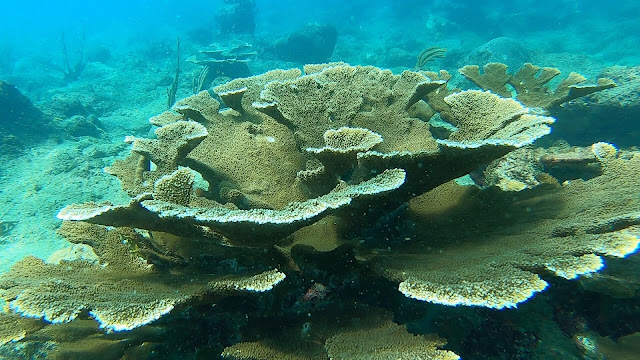The Journey beyond Coral Reefs
The initiative to share the world of coral reefs with citizens and students of Trinidad and Tobago may have ended, but the quest for healthy oceans and the health of people continues. Dr Anjani Ganase reviews the International Year of the Reef TT and encourages us to continue “chasing coral.”
Awareness and Action
2018 was the International Year of the Reef (IYOR), a effort initiated by the International Coral Reef Initiative (ICRI) to raise global awareness of the value of coral reef ecosystems. Trinidad and Tobago joined several countries around the world, as well as forty non-governmental and intergovernmental agencies, to learn about coral reefs and the threats they face, especially imminent climate change, and to engender action for coral reef conservation.
Throughout the year the IYORTT partnership grew significantly. It started with a core group of scientists who began discussions with other environmental groups and educational institutions. As the conversation grew, it extended to business and those less familiar with coral reefs. One thing we learned was that it was very easy to meet and talk with other groups. Companies were eager for us to talk to their employees, and willing to collaborate on IYOR theme activities for educational and outreach purposes. Most groups did not know about our own coral reefs here in Trinidad and Tobago and what threatens them, namely our pollution and waste, over exploitation and the most devastating of all, our warming planet. IYORTT engaged with about twenty partners in all. This included big and small businesses, environmental groups, educators and governmental organizations.
 |
| Interested in saving, studying or seeing corals? Get in the water! Sun, Sea and Science campers snorkel on Tobago’s coral reefs. Photo by Jahson Alemu |
Highlights
IYORTT reached out to adults and youngsters. We hosted an official launch on World Oceans Day, to celebrate the value of coral reefs and the importance of the oceans. This featured an immersive underwater experience, virtual diving and discussions with scientists knowledgeable about coral reefs. If your school or company missed these events, it is still possible to have one created for your group. (We also auctioned special coral reef treats made from made in TT Cocobel chocolate.)
Children made this year special; residents of the St Jude’s Home for Girls, Marian House, Life Centre and the 6th Trinidad Sea Scouts explored the intertidal pools and reef flats of Toco. At art camps, they constructed edible corals, did virtual dives on reefs (using VR goggles), Children were happily turned on to the awesomeness of corals. We are pleased to have ignited a posse of heroes for coral reefs and ocean life.
Throughout the year several screening events for the award-winning film Chasing Coral were held, which documented the process of coral bleaching and the damage to marine life and livelihoods that rely on this crucial ecosystem around the world. MovieTowne Port of Spain hosted daily screenings over a week; secondary school students, business groups and individuals were invited. Over the course of this week, we screened the documentary to over 20 schools. The discussions that followed these screening events were crucial: the message was that Trinidad and Tobago is a small-island nation with coral reefs. Indeed we benefit from these ecosystems directly for food and tourism, with the potential for greater benefit if managed and protected.
In terms of local disturbances, pollution, waste and the need for active protection, individuals are encouraged to make small changes, especially with regard to plastic waste. We are fortunate to be able to explore coral reefs offshore, in our “backyard,” to see and appreciate the beauty of coral reefs. Of all the groups, children were the most eager to learn more and were encouraged to form snorkelling and diving clubs.
 |
| The ocean begins on the shore! Exploring Toco’s unique coral reef. Photo by Farahnaz Solomon. |
Challenges and the way ahead
During the IYORTT 2018 campaign, the conversation surrounding climate change impacts was a lot more difficult. We were sharing information of the impacts of climate change to our oceans and coral reefs, but sadly we are lacking solid solutions and action plans that can be easily undertaken by individuals; we have no template that can be applicable to different sectors and social and economic groups. Any solutions offered would lead to a string of other questions and issues. For example, the proposal to divest Trinidad and Tobago’s economy away from fossil fuels to alternative technologies could result in the loss of income and security to families across the country. Another solution to reduce our carbon footprint as individuals is limited by the lack of alternatives. How can we reduce our car emissions impact, when public transport still relies on cars and buses? How can we reduce plastic waste when everything we buy is already pre-packaged in layers of plastic?
 |
| You can still explore the ocean by looking in! Sun, Sea and Science campers view corals on a glass bottom boat tour. Photo by Jahson Alemu |
These are the frustrating challenges that continue to block and prevent individuals from making the changes they want; many of us simply can’t because we are too busy trying to make ends meet. Herein lies the complexity of tackling climate change on a national scale. We need whole communities and government support to make change. We may not have all the solutions, but maybe it was a good start to encourage others to think about what can be done.
I personally struggled with coming up with meaningful solutions for young adults who are very concerned about their future, especially those choosing career paths, yet they still had no control of their government as they were too young to vote, they didn’t drive, they were not earning. At every Chasing Coral school-screening event, be it in the school’s auditorium or at MovieTowne the first set of questions always related to what can be done immediately. There are no easy solutions, but we encouraged everyone to use the new information to think innovatively about their career paths. Not everyone needs to become marine scientists but we need new thinking to shift the standard operating procedures of their jobs to consider the environment and climate change, whether they were studying law, medicine or engineering.
The journey continues
The next steps for individuals are to continue to demand change from those who frame our society and economy – government and business owners. Only then can there be the incentive to change. Government needs to seek the advice of experts to plan for the next fifteen to twenty years. We need to invest in skills and training for new technologies and the suitable infrastructure for the next generation of problem solvers. Businesses need to invest in updating the knowledge and skills of employees to fit a carbon neutral future. Even though the International Year of the Reef 2018 has ended, our journey “chasing coral” must continue.
 |
| Students view the University of Trinidad and Tobago’s marine specimen display at the Chasing Coral Screening event at MovieTowne. Photo by Anjani Ganase |


